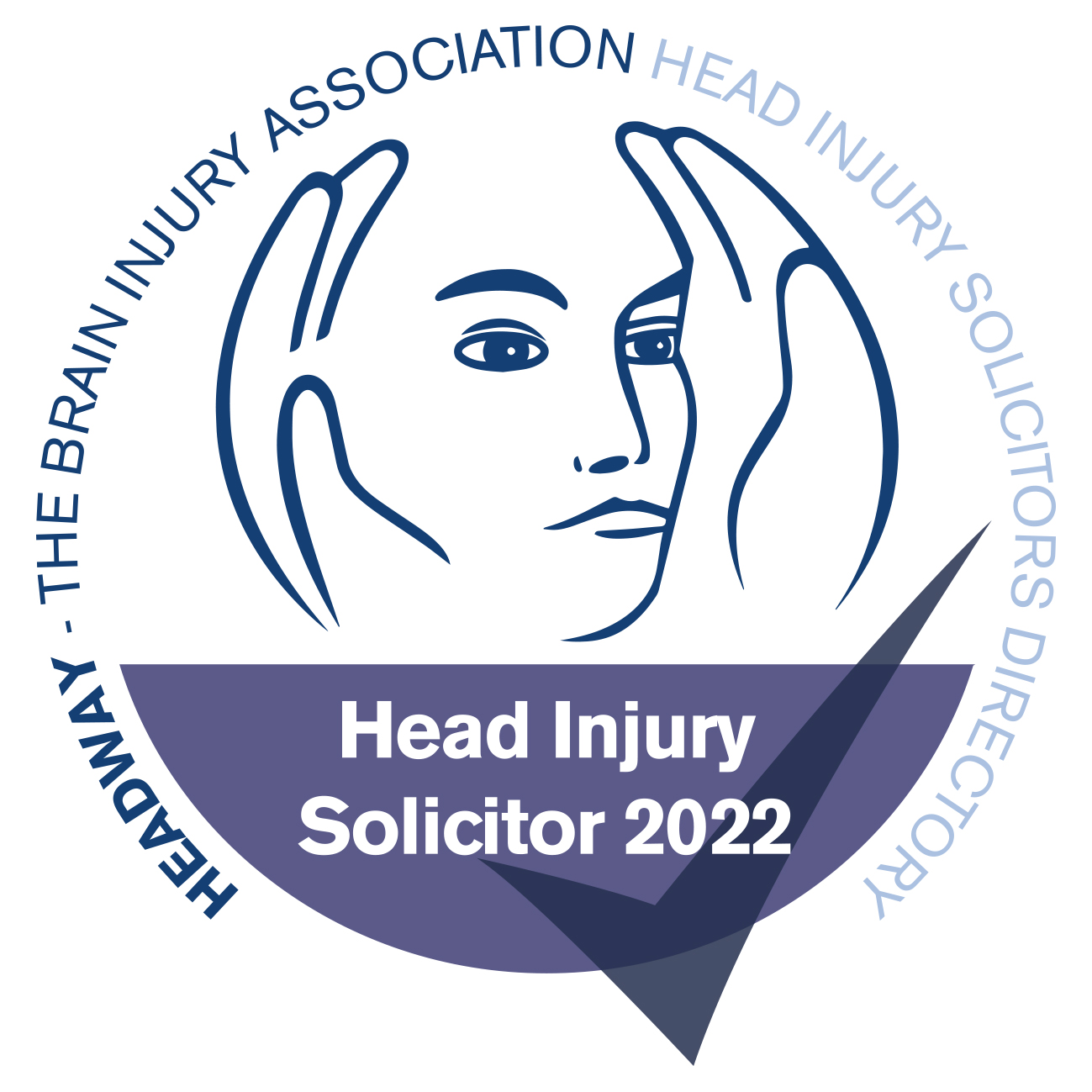Meningitis Negligence Claims
Potter Rees Dolan’s expert team of specialist solicitors are here to help you claim the compensation you deserve if mistakes made by medical professionals have resulted in a delayed or missed diagnosis of meningitis for you or a loved one.
We know what you are going through - and we realise that your world has been turned upside down due to mistakes made by those that you would normally trust.
We work with people experiencing similar situations to you every single day, and we are dedicated to providing expert support, legal advice and care to those affected. Because we know how devastating this illness can be, we will work tirelessly to get you the answers and the compensation you deserve.
Our highly reputable clinical negligence team includes Helen Dolan, Lesley Herbertson, Helen Budge and Gill Edwards, who have almost 80 years’ combined legal experience between them. Several members of the team have been featured in the prestigious Legal 500 and Chambers guides, underlining the strength of their reputation.
Our team offers a highly personal service, and we strive to give clients a voice when things have gone wrong and their health has suffered due to medical negligence. We are also dedicated to improving standards in healthcare across the UK.
Speak to our caring and supportive team of solicitors today by calling 0800 027 2557; alternatively, if you’d like one of our solicitors to call you back, please fill in the contact form on the side of the page.
Testimonials
“Dealing with solicitors and legal matters can be very daunting. You made the experience very easy, and in a friendly manner. Thank you very much.”
Mr and Mrs L, Glossop
“Friendly, understanding, clear and accommodating. Took the time to explain rationale for decisions and legal processes. Exactly the right balance of direction and recommendation. Very personable service, can't fault the service, from receptionists to solicitors to specialist help.”
Mrs B, Turton
Read more testimonials from our clients here.
What is meningitis?
Meningitis is an infection affecting the membranes around the brain and spinal cord. When a diagnosis is missed or delayed, the consequences can be extremely serious - potentially even fatal.
The name ‘meningitis’ refers to the inflammation of the covering and lining of the brain, and can be caused by either a bacterial or viral infection. In general, bacterial meningitis is much more serious, and without immediate care and antibiotic therapy, it can be fatal or cause devastating brain damage. Cases of bacterial meningitis are rapidly reducing, however, due to the widespread use of the Hib and meningococcal vaccines.
The bacteria responsible for meningitis reach the brain through the bloodstream from an initial site of infection, commonly in the nose or throat. Most bacterial meningitis is caused by three types of bacteria:
- Haemophilus
- Meningococcus
- Pneumococcus
These bacteria are commonly found in the nose and throat of healthy people, but occasionally this can get into the bloodstream. When the body’s own defences do not stop the infection at this point, blood poisoning - also known as septicaemia - is common. This can be very dangerous, and the toxins produced by the bacteria can cause severe damage to the organs and tissues, which then causes meningitis.
If the illness is not diagnosed and treated quickly enough or correctly, it can cause lasting damage and, in some cases, lead to the death of the patient.
Can I make a meningitis negligence claim?
If you or your child have experienced delays in your meningitis diagnosis, or substandard care has meant symptoms were missed or dismissed by a medical professional, you may be entitled to compensation.
How can I pursue a meningitis negligence claim?
Potter Rees Dolan’s clinical negligence team has earned a reputation as one of the very best in the UK. Boasting many decades of combined experience in serious injury law and comprehensive medical insight, the team has an unwavering dedication to helping families recover the compensation they deserve.
About Helen Dolan, head of the department, Chambers 2019 says: "Helen regularly handles complex claims, such as those related to psychiatric care. She has further expertise in spinal injury, surgical negligence and cerebral palsy claims, as well as breach of duty cases. One source states: 'Her attention to detail and knowledge of the case inside and out was exemplary.’”
The same publication said Lesley Herbertson “is very good on the complex details of the case and is able to translate this to clients".
Meanwhile, Gill Edwards is described as being "incredibly good with clients - they really warm to her - and very good on the medical details".
The Chambers 2019 guide also offered praise for our clinical negligence team as a whole, calling it a “well-regarded team with an impressive caseload of complex clinical negligence work” and citing sources that highlight the "really nice, bespoke, high-quality" service we have to offer.
Our clients regularly tell us that it is the empathy and care with which we act that sets us apart. We specialise in serious and catastrophic injuries, so we know how difficult it can be to live with severe disability or illness. It is our aim, therefore, to make the claims process as stress-free for you and your family as possible.
Funding a meningitis negligence claim
The majority of meningitis negligence cases are funded on the basis of a “no win, no fee” arrangement, also known as a Conditional Fee Agreement. We can investigate your potential claim and you will not have to pay any costs if the case is not successful; the details of how this arrangement works will be explained to you during our first meeting.
You may already have the benefit of a legal expense insurance policy, and we will always start by looking into whether you can use this same policy before considering whether a Conditional Fee Agreement is more appropriate.
What happens next?
Initially, we will discuss your circumstances, helping you to understand whether or not your case can be progressed. If we agree that it can, we will then help you collate all the evidence required and build a strong case, in order to give you the best chance of recovering the right amount of compensation.
We will begin by collecting all relevant medical records and will go through each of these with you. We then instruct independent experts in the appropriate disciplines to advise on whether or not you or your family member has received substandard treatment. When the supportive expert evidence has been collected, we will commence court proceedings and progress the claim as quickly as possible.
Contact us today
If you believe you are entitled to make a meningitis negligence claim, call us on 0800 027 2557. You can arrange for us to get in touch with you by completing the online contact form on the side of this page, or on our contact page. If you have someone specific in mind that you would like to speak to, visit their profile on our people page.
FAQs
Who is at risk of meningitis?
Young children are at considerable risk of contracting meningitis because they have not encountered the bacteria before, meaning they will not have built up any immunity.
The risk of meningitis is highest when a baby is days or weeks old, due to the low level of immune defences the child has at this age. When a child is young, the bacterial species usually responsible for meningitis are streptococcus B, E. coli and listeria, which are commonly found in the mother’s lower bowel and birth canal.
What are the symptoms of meningitis in babies and young children?
There are many symptoms of meningitis found in babies and young children, and it is important that parents know their child may not always display every symptom. It is also important to note that they can appear in any order.
The symptoms include:
- Drowsiness or unresponsiveness
- Vomiting
- Rapid breathing or grunting
- High fever, but with cold hands and feet
- Stiff neck
- Unwillingness to feed
- Unwillingness to be picked up
- Blotchy skin and red rash that will not fade when a glass is rolled over it
- A tense soft spot on the top of the head (“fontanelle”)
- Seizures or convulsions
It can be very difficult to distinguish meningitis from other, less serious conditions in children. Because of this, there can be a delay in diagnosis, which can have devastating effects. The question will be whether the doctors or nurses involved unreasonably failed to consider that meningitis might be a potential diagnosis.
What are the symptoms of meningitis in older children, teenagers and adults?
Along with the symptoms listed above, older individuals may also experience a number of additional symptoms related to meningitis, which again can appear in any order:
- Irritability and confusion
- A distinctive rash
- Muscle pain
- Headaches















